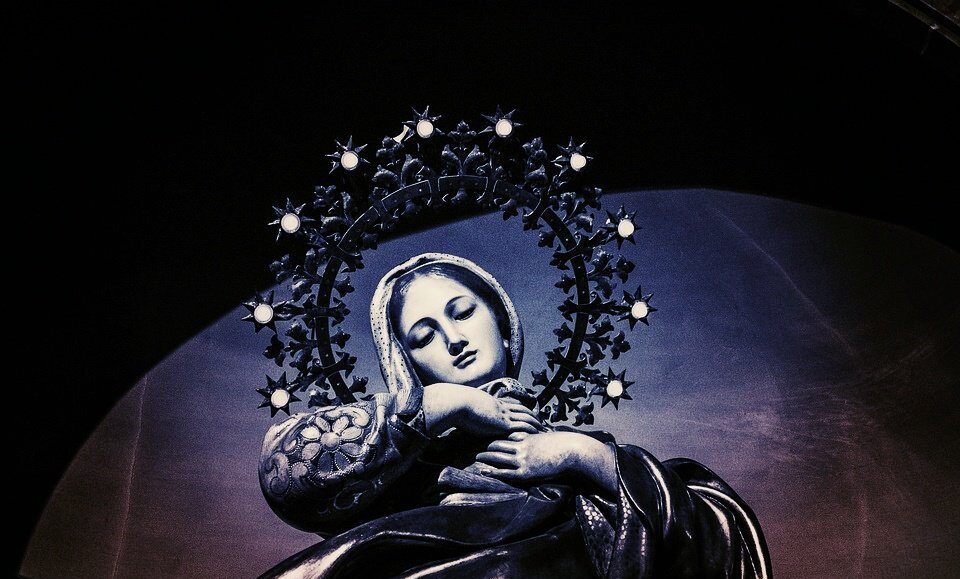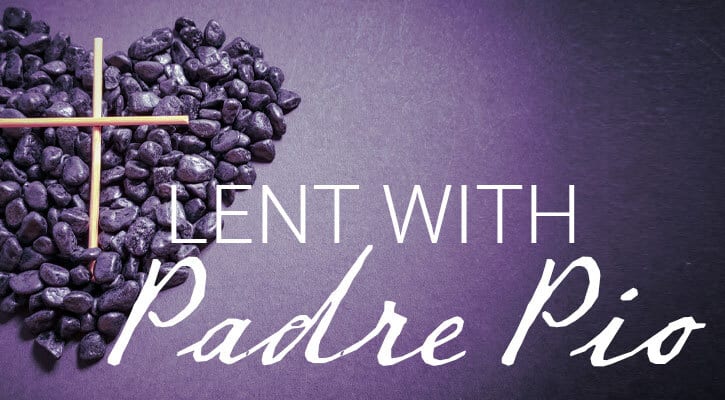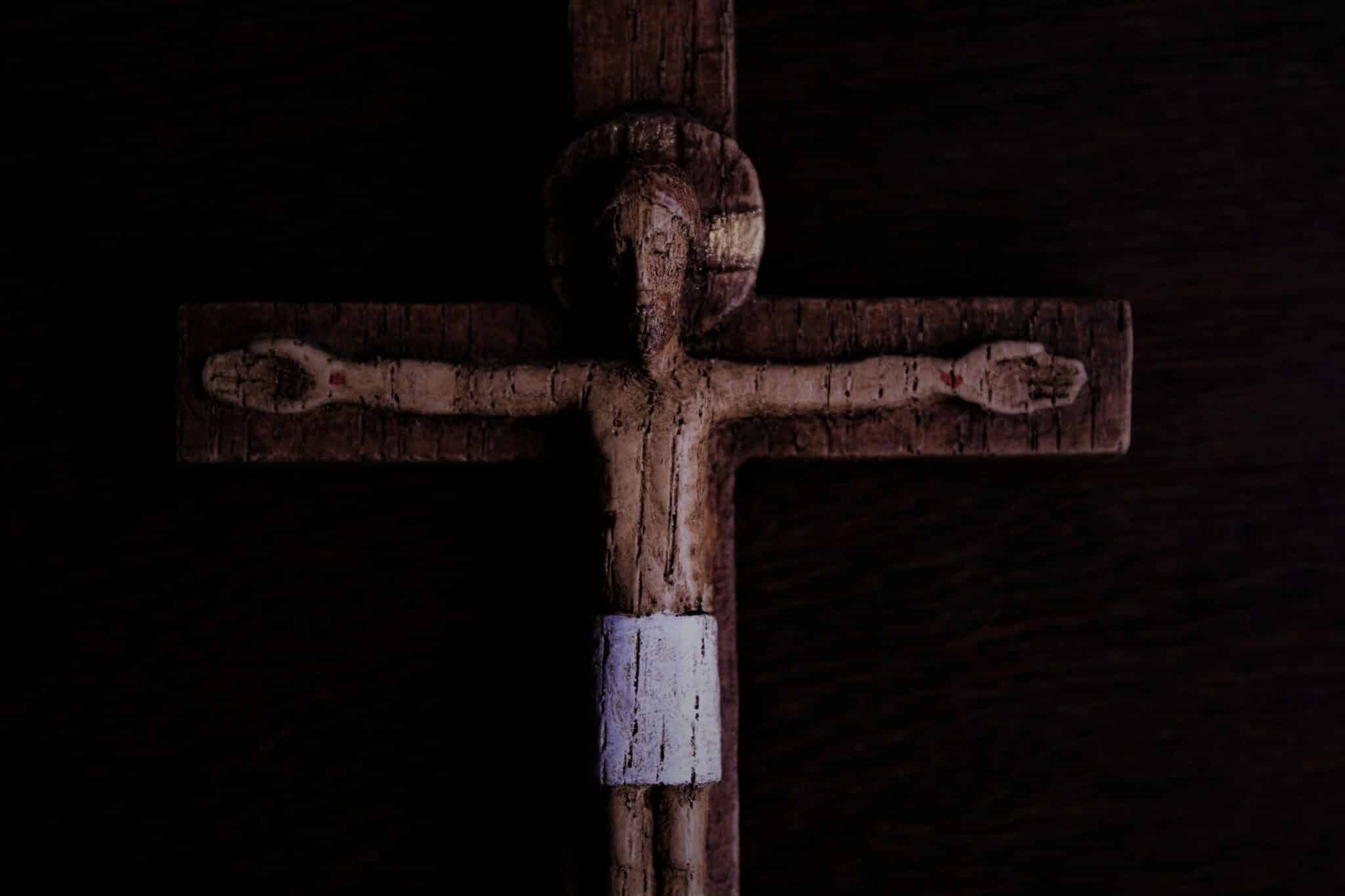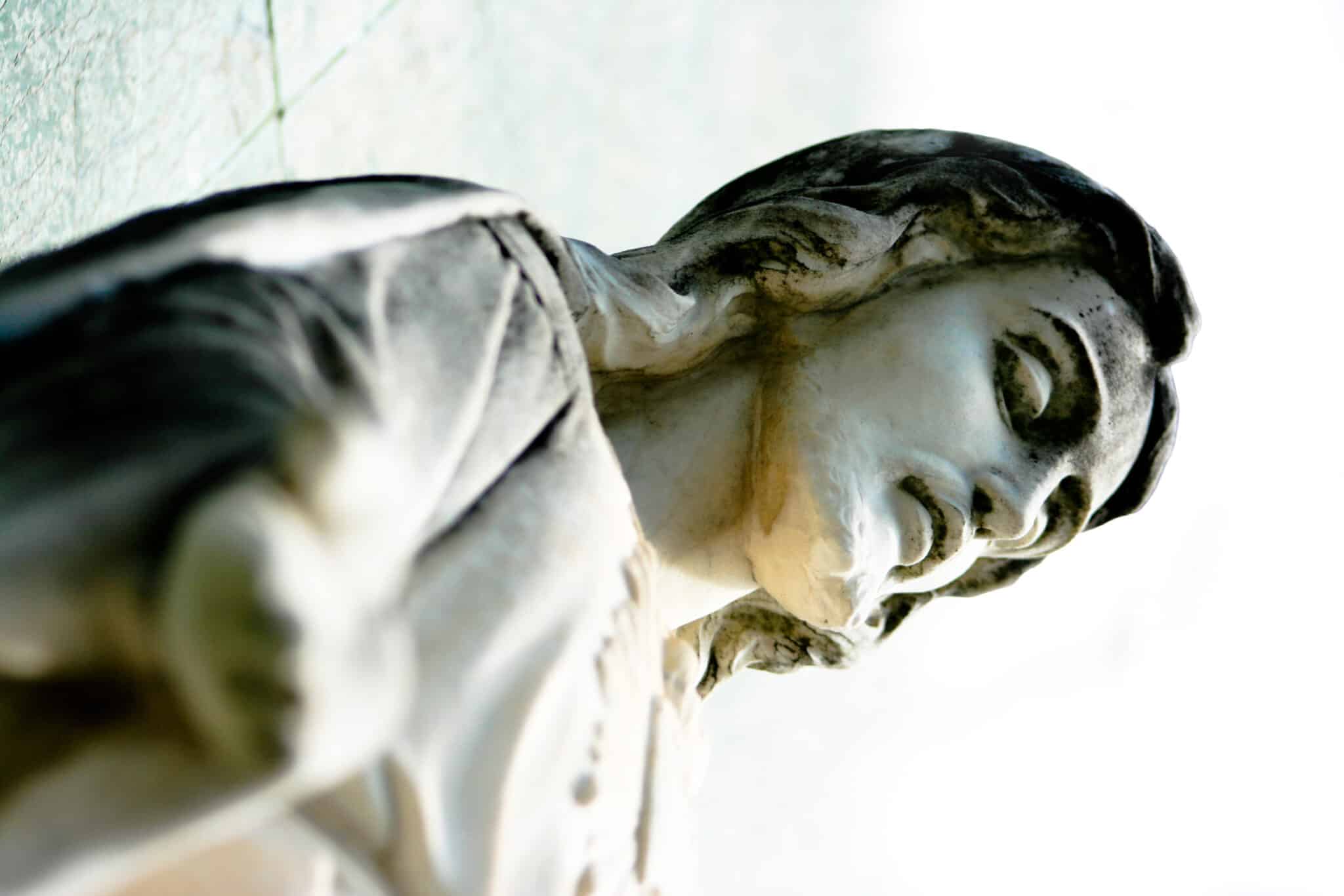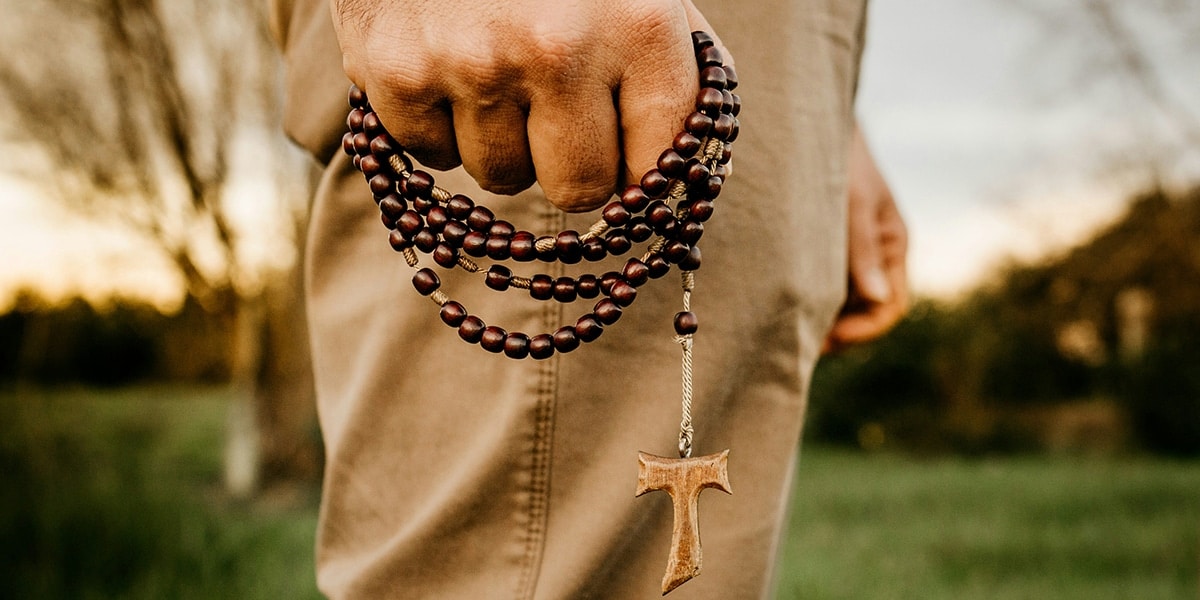Mary’s life, like that of her son, will be a living out of her own canticle. She will enter into the mysteries of Christ’s life. Like the Christian mystics after her, she will participate in a more intense way in the very mystery that she is sharing. As the model of intimacy with God, Mary will enter into the death and resurrection of her son. She will stand beneath the cross of his dying; she will rise with him body and soul in the mystery of her Assumption into heaven. Franciscans pray a seven-decade rosary, the Franciscan Crown, that for me summarizes what it means to enter into the mystery of how we are transformed by and into Christ.
The mystic knows in a uniquely graced way these mysteries that we believe and live out as we try to be true to the mystery of our baptism. The very word mystic derives from the word mystery, and God does allow the mystics to see into mysteries, like the mystery of baptism, by way of visions or insights that transcend our usual way of seeing. They see and relate to us the wonder of what is happening within us, for example, as we live out the mysteries of our salvation. The mystics confirm that what we believe is indeed true.
The seven joys of Mary of the Franciscan Crown illustrate for me what happens in the lives of mystics.
1. Annunciation. Like Mary, the mystics have experienced some extraordinary visitation of God. They hear or see Christ or his messenger, and they are given a choice to respond or not. They realize that their experience of the Divine not only involves listening but responding.
2. Visitation. The response to God’s annunciation ultimately involves a reaching out to others, as Mary does in the second mystery of the crown, the Visitation. When she hears of her cousin Elizabeth’s pregnancy, Mary goes immediately to tend to her, to be her handmaid. She becomes her cousin’s servant as she became God’s servant in the Annunciation. The one leads to the other, and, indeed, to be handmaid to her cousin is to be handmaid to God. For, as her son will proclaim, when you serve the least of your brothers and sisters, you serve him.
3. Nativity. The mystical heart gives birth to God in poverty, littleness and often in obscurity. Mystics do not literally give birth to Christ, but they do so spiritually by their charity, by the gestures of their lives.
4. Adoration of the Magi. The mystics imitate the adoration of the magi symbolically and literally when they offer their newborn selves to God. They have a sense that they no longer belong wholly to themselves to do with their lives as they please, but they belong to God.
5. Finding Jesus in the Temple. The finding of the child Jesus in the temple speaks to the truth not only of the mystic’s life but of all our lives, namely, that we can’t hold onto God. God will be about God’s business, and nothing we do will make God our personal possession. We all experience this one way or another, but the mystics experience this most intensely because of the felt intimacy with God they’ve been gifted with. God at some point withdraws his presence, and the mystic is left in that dark night of soul, to use the language of John of the Cross, in which God seems to no longer exist, at least not for them. They long to experience God, but they cannot make it happen, because God is leading them through this dark night in order that they might love God for God’s own sake and not for the intimacy and gifts God gives them. And so, they wait, and they go through the motions of prayer and charity; but there is no consolation, no joy in it, until God finds them again, and their joy is restored to a heart that has been purified of selfishness.
6. Resurrection. Jesus’ resurrection is prefigured by the transfiguration. When Jesus takes Peter, James and John up the mountain and is transfigured before them, they try to hold onto that experience the way other mystics have tried to hold onto their ecstatic experience of God. Jesus’ face is changed, and his clothing becomes dazzling white, and Moses and Elijah appear in glory, speaking of the passage Jesus will have to make in Jerusalem. Peter immediately wants to make three shelters there for Jesus, Moses and Elijah in order to keep them there. But the evangelist Luke says that Peter doesn’t know what he is saying because, as he is speaking, a cloud comes and covers them with a shadow, and the disciples are afraid. Then a voice comes from the cloud, “This is my Son, my Chosen; listen to him!” (Luke 9:35). Jesus is left standing there alone. The vision has passed, and shortly afterward Jesus enters Jerusalem, beginning his passion, death and resurrection. None of us humans, not even Mary, can hold onto glory. The ordinary passages through life and death continue as they did for Mary after meeting her son as the Risen Lord following the Resurrection. The mystic, however, has indeed seen the vision, has heard God’s voice. Those of us who have not are encouraged by their visions and voices to believe more firmly that beneath the appearances of our ordinary lives God’s glory lies hidden. It flares out from time to time and is seen by those to whom God chooses to reveal this parallel world we believe in but do not see.
7. Assumption and Crowning of Mary. Like Mary in this last mystery, the mystics are assumed into heaven soul and body. By this I mean that only in the integration of soul and body do we enter paradise. Once one has had an intense experience of God, the temptation is to privilege the soul and denigrate the body, thereby splitting what God has made one person. Some mystics have seen the body as a problem, a source of sin, an inferior part of the self, and they have acted accordingly, often imposing extreme penances on the body, neglecting the needs of the body, even trying to become pure soul. This is another form of trying to hold onto God. Instead we must let God go, as Mary did when she saw her son die, saw him alive again, then saw him ascend into heaven. Following Jesus’ instructions, she went with John to his home to live out her days.


